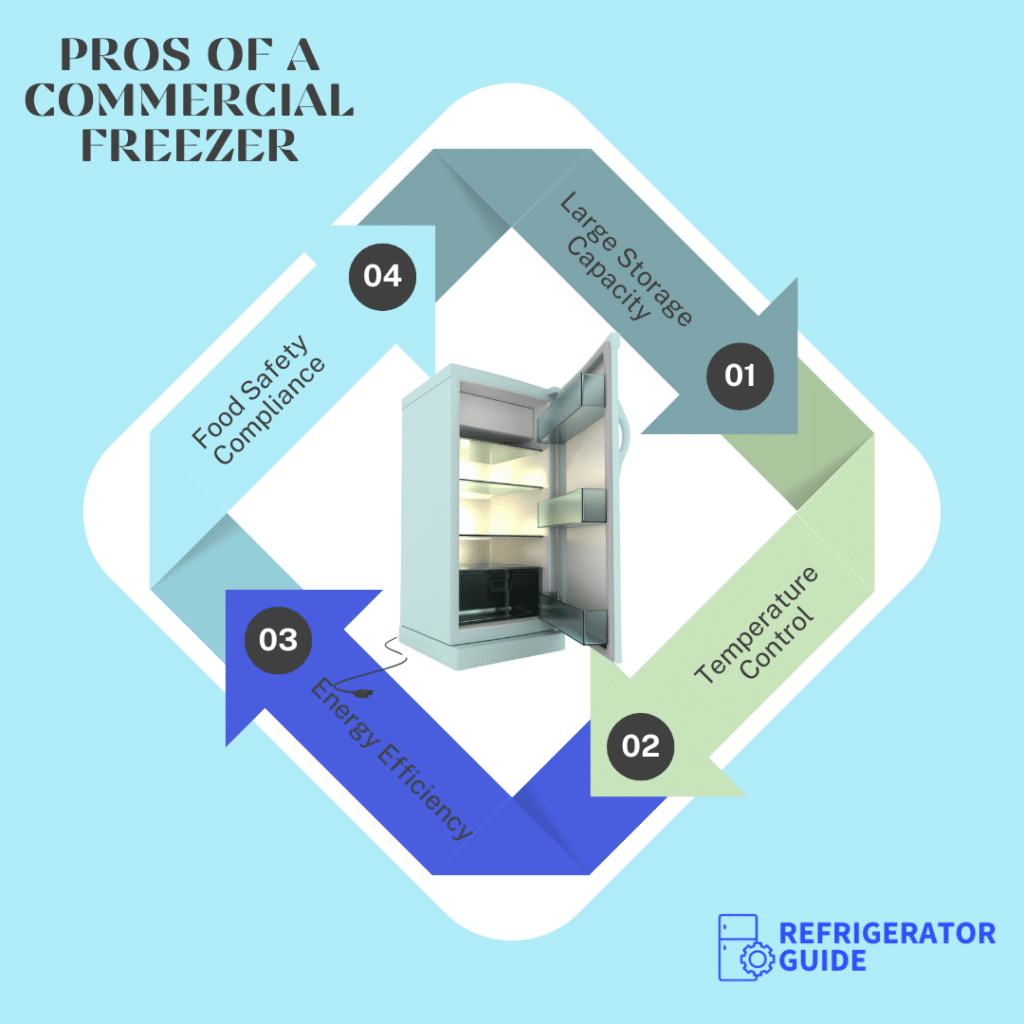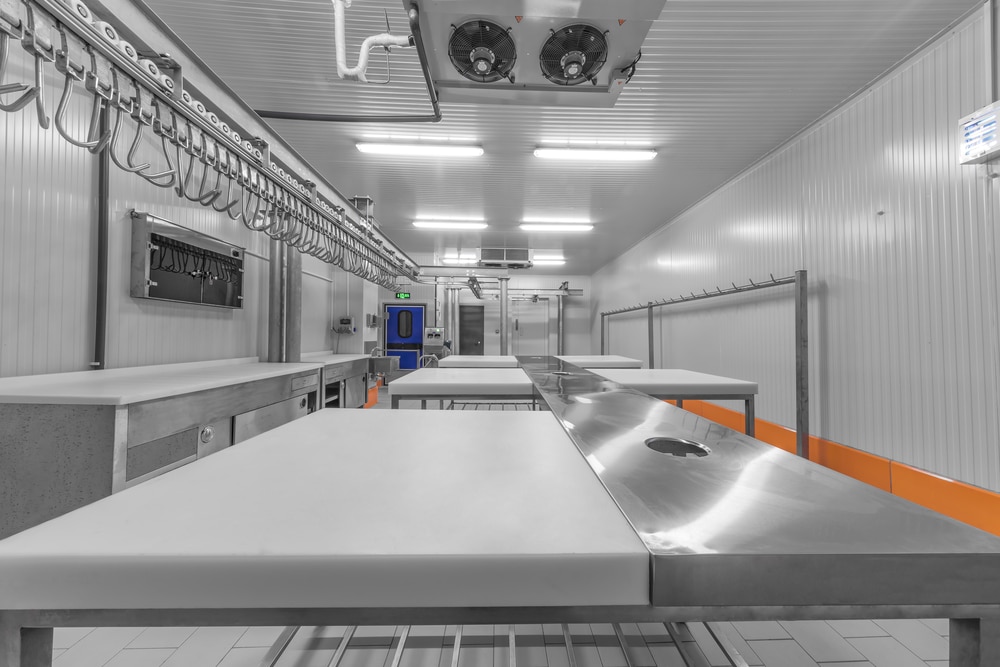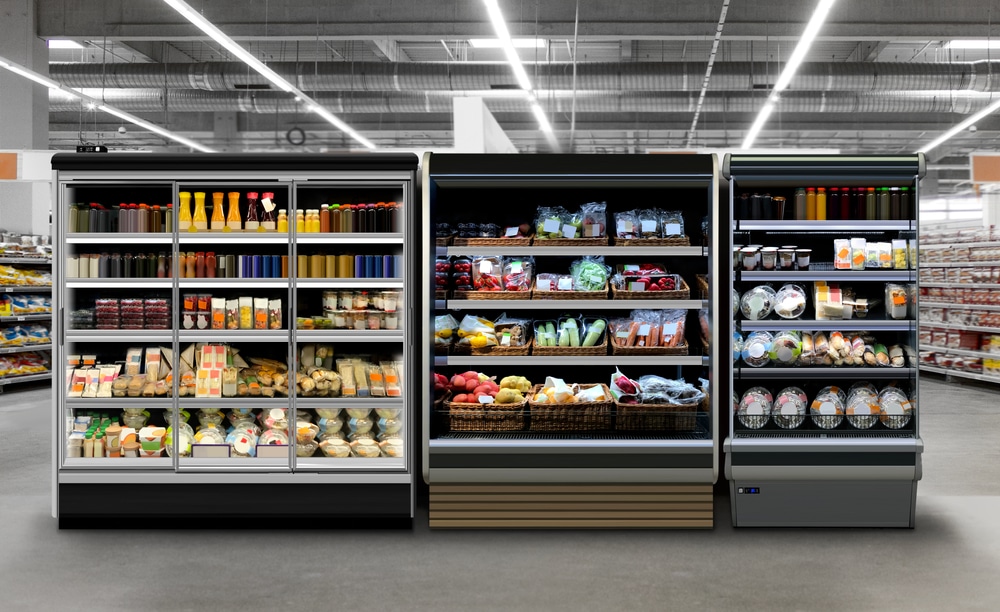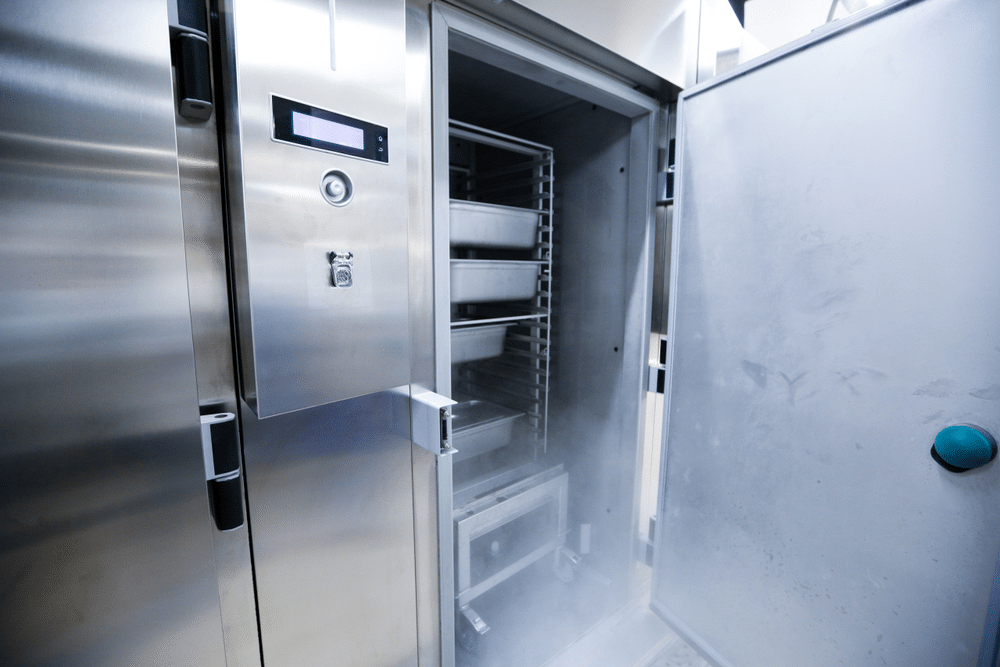Table of Contents
Freezers are the most essential electric appliances of our lives. You all agree, right? They make sure to keep all our food items cold during the hot and humid weather. But, have you ever wondered how some of the biggest restaurants and food joints keep their food items preserved? Folks, it’s about time, you get an understanding of what’s a commercial freezer. A commercial freezer is a vital piece of equipment in the food service sector. It stores huge amounts of food fresh and free of decomposition at low temperatures. Commercial freezers, as opposed to domestic freezers, are designed to withstand the rigors of a busy kitchen setting and provide reliable storage options for eateries, supermarkets, and other organizations that deal with food. Let us get some ever more deeper understanding of working of a commercial freezer.
Working of a Commercial Freezer
The function of a commercial freezer is to preserve perishable commodities and avoid foodborne illnesses by keeping the temperature consistently low, usually between -10°F and 0°F. These freezers, made to withstand extensive use in industrial kitchens, include sophisticated insulation and robust compressors to reduce food waste and avoid freezer burn. Commercial freezers are robust and energy-efficient devices that guarantee accurate temperature control, lowering variations that can jeopardize food safety. They are crucial for any company that needs dependable cold storage because of their sturdy architecture. Let’s take a look at how we can actually preserve food with safety inside a commercial freezer.

Temperature and Food Safety of a Commercial Freezer
You might be well aware of the fact that freezers usually have two main types according to their uses. The residential freezers and the commercial ones. Both of these types work according to the energy required to keep your edibles preserved. Food safety depends on maintaining the proper temperature in commercial freezers. Generally speaking, a commercial freezer should be kept between -10°F and 0°F (-23°C and -18°C). This range minimizes the risk of foodborne illness and freezer burn by ensuring that food stays frozen firm.
- Appropriate Temperatures: By keeping the freezer within the suggested range, you can stop bacterial growth and preserve the quality of your food.
- Temperature Monitoring: By monitoring the temperature regularly, you can ensure it stays within a safe range and prevent variations that could cause food to spoil.

The Difference Between a Freezer & Deep Freezer
Knowing the difference between a regular freezer and a deep freezer is crucial when choosing the ideal freezer for your needs;
Freezer
- Usually located in a residential or business kitchen, a freezer can be an independent equipment or a component of a refrigerator unit.
- It keeps food at a temperature that’s ideal for long-term freezing storage.
Deep Freezer
- Generally operating at lower temperatures than a regular freezer, a deep freezer is intended for long-term storage.
- It is perfect for commercial situations where many perishables must be kept because it is frequently larger and used to store large quantities of food.
Tips for Proper Food Storage
Proper food storage in commercial freezers is essential to reduce food waste. By organizing food items and monitoring their storage duration, businesses can guarantee that food is used before it expires, minimize waste, and save expenses.
- Advice for Appropriate Storage: Store food in sealed containers to avoid freezer burn.
- Freezer Doors: It is best to keep freezer doors closed to preserve a constant temperature.
- Label Items: Mark food items with the freezing date so you can monitor their storage duration.
A Look at the Energy Efficiency
An energy-efficient model is crucial because commercial freezers use a lot of energy. This lowers the impact on the environment while simultaneously lowering operating costs.
Tips for Energy Efficiency
- Regular Maintenance: To guarantee that the freezer runs effectively, give it regular maintenance.
- Cubic Feet: To prevent wasting unnecessary energy, select a freezer that is the right size (in cubic feet) for your needs.
How Can You Avoid Freezer Burn & Foodborne Illnesses?
Freezer burn occurs when food is improperly stored, leading to dehydration and oxidation, which affects the texture and flavor of the food. To avoid freezer burn and ensure food safety, you can do the following things.
- Appropriate Packaging: Use warm, airtight containers or vacuum-sealed bags to store food.
- Cold Temperatures: Maintain a consistent, low temperature to keep food fresh.

Final Thoughts
Summing up, any kitchen needs a commercial freezer because it keeps food safe by keeping temperatures consistently low. Commercial freezers, in contrast to residential ones, frequently have lower temperatures and more storage space. Ensuring energy efficiency, avoiding temperature fluctuations, and maintaining correct temperature monitoring are essential for optimal use in preventing freezer burn and foodborne infections.
In conclusion, businesses may minimize food waste, preserve food safety, keep them away from danger zone and guarantee ideal storage conditions by being aware of these factors.
Keep your edibles fresh and cold, and serve them up at your restaurant to relish!

